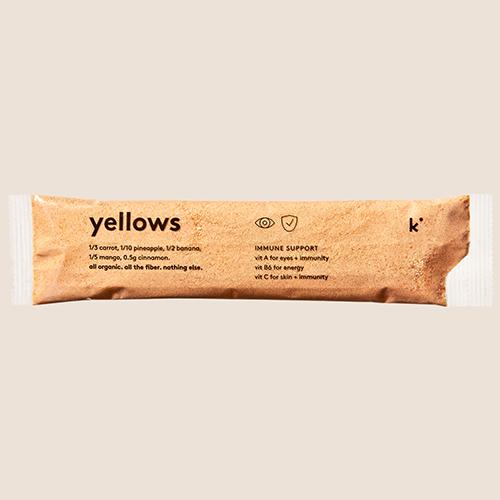What are macronutrients?
We’ll be the first to admit that a lot of nutrition science is extremely complicated. But the good news is, understanding the most basic building blocks of our diets isn’t exactly rocket science!
Picture this. It’s January 1st. You’re still shaking off the cobwebs from last night, but you’re adamant about starting the year off on the right foot.
You’ve just driven to the grocery store. After all, what better place to begin this journey than the health food aisle? You approach with your shopping basket, pause, and begin inspecting the various products wrapped in matte-finish, earth-toned packaging. You see words like “adaptogen,” “superfood,” and “bioavailable.”
“Crap,” you mutter. You didn’t think it would require getting a degree in nutrition science just to figure out what to eat.
This is the point in this hypothetical where a giant anthropomorphic kencko bottle busts through the shelves like the Kool-Aid Man, turns to address you, then calmly and reassuringly says: “it doesn’t have to be that complicated.”
Meet the Macros
That’s because a well-rounded diet can be broken down into just three distinct macronutrient categories: carbohydrates, proteins, and fats. Each provides energy for the body and each serves different, essential functions, and if you’re getting enough from the right sources, you’re probably doing just fine!
Carbohydrates
Carbs provide the primary source of energy for the body and the brain. Though pop-science often paints them in a negative light, some of the healthiest foods on the planet – fruits and veggies – are primarily comprised of carbs.
Dietary fiber – both soluble and insoluble – is a form of carbohydrates, and is essential for managing levels of cholesterol and sugar in our blood. Plus, if you aren’t eating enough carbohydrates, your body converts muscle or fat into energy, meaning if you want to maintain muscle mass, carbs are a must!
Carbohydrates pack 4 calories per gram, and common sources include: grains (like rice, pasta, cereal, bread), legumes (such as beans, lentils, chickpeas, and soybeans), fruits (all of them!), vegetables (both starchy and non-starchy ones), and milk.
Fats
Like carbs, fat sometimes catches a bum rap. But it’s absolutely essential for things like the absorption of fat-soluble vitamins, shoring up structure in cell membranes, hormone production, surrounding and protecting organs, and it’s even an energy source.
That said, not all fat is created equally. There’s saturated fat, and unsaturated fat.
Saturated fat is a solid, and is associated with higher levels of total cholesterol and LDL (“bad”) cholesterol. It’s also linked to a higher risk of heart disease and metabolic disorders.
Unsaturated fat is a liquid, and is associated with lower levels of “bad” cholesterol, and linked to lower risk of chronic diseases.
Fats contain 9 calories per gram. Sources of saturated fats include animal meats, tropical oils (think: coconut, palm), and dairy (from cheese or whole milk). Sources of unsaturated fats include fish, vegetable oils (like olive, canola, sunflower), avocado, nuts, seeds (hemp, chia, flax, sunflower, etc.), and olives.
Protein
Let’s start by dispelling a common myth: that you can’t get sufficient protein from plant sources. Plant-based protein can easily provide the 10-20% of our recommended daily calories from this macronutrient!
Moving on, protein is responsible for the growth and development of body tissues, includes enzymes needed for all basic reactions, and is involved in the structure, function, and regulation of all organs.
Animal sources of protein include red meat, poultry, fish, seafood, eggs, yogurt, and milk. Plant-based sources include legumes (such as beans, lentils, chickpeas, soybeans), nuts (like almonds, walnuts, peanuts, etc.), seeds (like hemp, chia, flax, sunflower, etc.), and wheat gluten. Protein packs 4 calories per gram.
there's more good content where that came from
